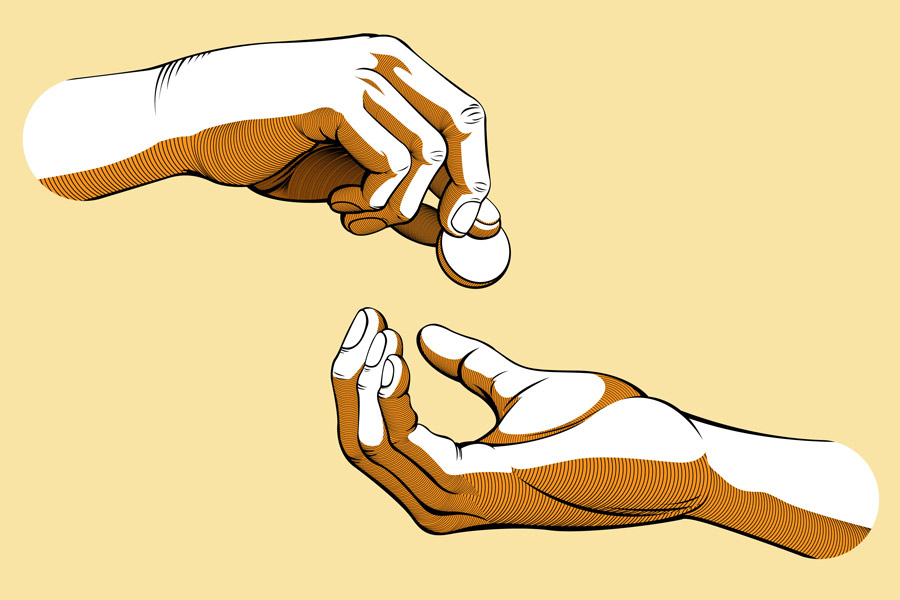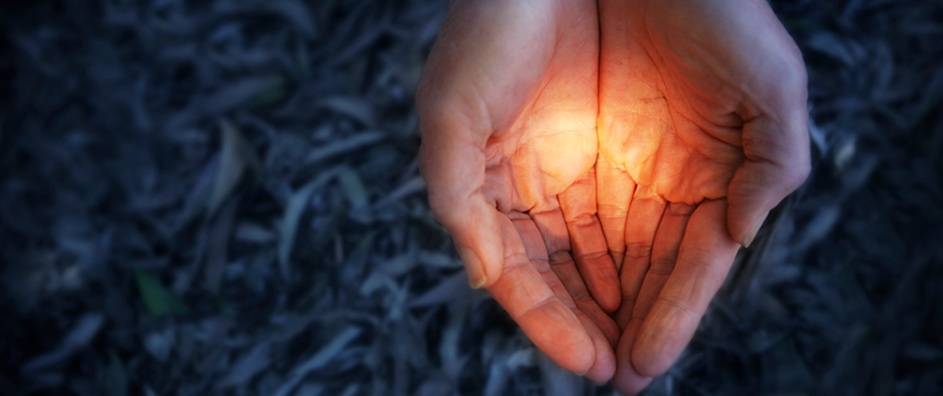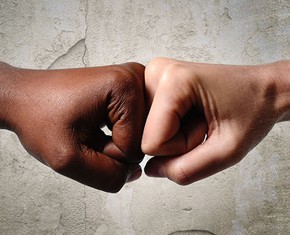The views expressed in our content reflect individual perspectives and do not represent the authoritative views of the Baha'i Faith.
O Children of Dust! Tell the rich of the midnight sighing of the poor, lest heedlessness lead them into the path of destruction, and deprive them of the Tree of Wealth. To give and to be generous are attributes of Mine; well is it with him that adorneth himself with My virtues. – Baha’u’llah, The Hidden Words, p. 39.
The Baha’i calendar, as readers will know by now, gives special names to each month, each day, and each weekday. These names describe various attributes of God. Each of these godly qualities can also be expressed as goodly actions in our daily lives. But did you know that the Baha’i calendar also gives a special name to each year in a cycle of 19 years?
Not only does the Baha’i calendar have 19 months in each year, it has 19 years in each complete cycle of years. This cycle of years is called a “Vahid,” which means “Unity.” Here, unity refers to the oneness of God.
Generosity or Jad is the eighth year in a given cycle of 19 years; and is numerically equivalent to the number eight. But “Jād” is a neologism—a brand new word, created by the Bab! You will not find the word “Jad” in any Arabic lexicon or Persian dictionary, to the best of my knowledge. So the Baha’i calendar—called the Badi (“New” and/or “Wondrous”) Calendar by the Bab, who originated it—coins a brand-new term for “generosity”!
From the opening quote above, we know that “generosity” is both a godly and goodly perfection, that is, a quality of God that can be expressed as a human virtue as stated in Baha’u’llah’s “Book of Generosity:”
This is the Book of Generosity which hath been revealed by the King of Eternity. Whoso adorneth himself with this virtue hath distinguished himself and will be blessed by the All-Merciful from His exalted Kingdom of Glory. – Baha’u’llah, The Right of God, p. 4.
Those who are most capable of generosity, on a grand scale, obviously are the wealthy. A wealthy person who gives generously of his or her wealth for the benefit of the poor and disadvantaged in society is called a “philanthropist.” Baha’u’llah encourages the wealthy, each and all, to become philanthropists.
In this way, the amassing of fortunes can be for the common good, even though enjoyed by the elite few. According to the Baha’i teachings, one of the signs of the world’s maturity, sometime not in the far distant future, will be when a wealthy person simply cannot “enjoy” his or her wealth selfishly.
In good conscience, a wealthy person will be motivated, if not driven, by a sense of purpose in order to transform what otherwise might be perceived as greed, avarice and extreme selfishness (not to mention self-aggrandizement through flaunting one’s wealth for pride and prestige) into philanthropic acts of compassion that make a difference in human society.

In that future, Baha’is believe, a wealthy person will not be satisfied with wealth alone. Wealth will no longer be a cause of individual happiness or self-fulfillment. Only philanthropy will give a wealthy person a sense of personal worth. In that process, Baha’u’llah cautions against looking down upon the poor:
O ye that are the exponents of generosity and the manifestations thereof! Be generous unto them whom ye find in manifest poverty. O ye that are possessed of riches! Take heed lest outward appearance deter you from benevolent deeds in the path of God, the Lord of all mankind.
Say: I swear by God! No one is despised in the sight of the Almighty for being poor. Rather is he exalted, if he is found to be of them who are patient. Blessed are the poor that are steadfast in patience. – Baha’u’llah, The Right of God, p. 4.
Generosity and disdain cannot abide together, because generosity must be motivated by love and compassion. Generosity is best characterized by a genuine feeling of care and concern for the disadvantaged, for those whose lot in life has been a generally unlucky one. One aspect of love and compassion not only is to care about the welfare of another person, but to respect that person’s human dignity, and then to do everything possible to enhance that human dignity by helping to restore some kind of independence to that individual.
We will end this meditation on generosity by citing one of Baha’u’llah’s most celebrated passages, which begins with a call to generosity:
Be generous in prosperity, and thankful in adversity. Be worthy of the trust of thy neighbor, and look upon him with a bright and friendly face. Be a treasure to the poor, an admonisher to the rich, an answerer of the cry of the needy, a preserver of the sanctity of thy pledge. Be fair in thy judgment, and guarded in thy speech. Be unjust to no man, and show all meekness to all men. Be as a lamp unto them that walk in darkness, a joy to the sorrowful, a sea for the thirsty, a haven for the distressed, an upholder and defender of the victim of oppression. Let integrity and uprightness distinguish all thine acts. Be a home for the stranger, a balm to the suffering, a tower of strength for the fugitive. Be eyes to the blind, and a guiding light unto the feet of the erring. Be an ornament to the countenance of truth, a crown to the brow of fidelity, a pillar of the temple of righteousness, a breath of life to the body of mankind, an ensign of the hosts of justice, a luminary above the horizon of virtue, a dew to the soil of the human heart, an ark on the ocean of knowledge, a sun in the heaven of bounty, a gem on the diadem of wisdom, a shining light in the firmament of thy generation, a fruit upon the tree of humility. – Baha’u’llah, Gleanings from the Writings of Baha’u’llah, p. 285.
The compassionate qualities and attributes and actions encouraged by the Baha’i Calendar serve as convenient, even daily, reminders to translate spiritual thoughts and lofty ideals into practical for the social good, as the African (Tswana) proverb states: “Through others, I am somebody.”
















Comments
Sign in or create an account
Continue with Googleor